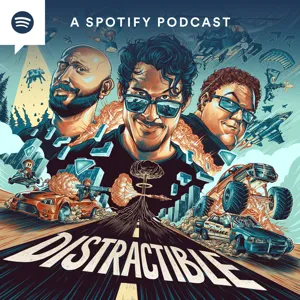Podcast Summary
The Legendary Silence of the Anechoic Chamber: The anechoic chamber, known for its silence, doesn't cause hallucinations or offer cash prizes for long stays, but people hear their own body sounds and find the quietness intriguing, leading to misconceptions.
The anechoic chamber, a room engineered to be the quietest place on Earth, has gained a legendary status for its disconcerting silence, leading to various speculations and even false rumors about its effects on visitors. The longest anyone is said to have stayed in the chamber is 45 minutes, but there is no scientific evidence to support claims of hallucinations or cash prizes for longer stays. The room's proprietor, Stephen Orfield, noted that people hear their heartbeats and become the sound in the chamber. However, the human body is constantly creating sounds, making environments we perceive as quiet, like the anechoic chamber, still louder than the threshold of human hearing. Despite the lack of evidence, the allure of the too quiet room continues to intrigue people, leading to misconceptions and false expectations.
The Anechoic Chamber: A Room of Silence or Intense Sensory Experience?: The anechoic chamber, though designed for silence, can be an intense sensory experience, making visitors acutely aware of their own bodily sounds, and limiting record durations.
The anechoic chamber, a room designed to absorb all sound, is not as peaceful as one might think. Instead, it can be an intense sensory experience, where visitors may become acutely aware of the sounds of their own bodies, such as the blood flowing through their veins. This experience, often described as unsettling or even taboo, has led to limited record durations in the chamber. Despite this, some individuals, like the author, are drawn to the chamber out of curiosity and a desire to push their limits. The chamber, originally designed as a recording studio, has a rich history and has been used to improve the sound quality of various products. However, due to its fame, public tours are no longer offered. The author's attempt to set a new record in the chamber took him to Orfield Laboratories in Minnesota, where he was able to experience this unique sensory environment for himself.
Exploiting sound properties in unique environments: The US Army used large speakers to create a deceptive sound environment during WWII. Anechoic chambers absorb sound completely, allowing for precise sound measurements and research.
Sound waves in outdoor environments have fewer opportunities to bounce back and dissipate more quickly compared to indoor spaces. This property was exploited by the US Army during World War II to create a deceptive sound environment using enormous speakers. To build an anechoic chamber, which absorbs sound completely, scientists tested various shapes and materials, eventually settling on fiberglass wedges. The resulting chamber, such as Orfield's, is designed with multiple layers of insulated walls and covered in wedges to absorb sound waves from all angles. The interior of the chamber creates an intimate sound environment where voices sound as if they're spoken directly into your ear. This unique design principle allows for precise sound measurements and research, making anechoic chambers valuable tools in various fields, including acoustics and audio technology.
Experiencing Sensory Deprivation in a Soundproof, Lightless Chamber: Enduring prolonged sensory deprivation can be mentally and physically challenging, requiring preparation and a willingness to adapt to unfamiliar conditions. Expert advice can help mitigate potential psychological effects.
Enduring prolonged periods of sensory deprivation in a soundproof, lightless chamber, as I experienced at Warfield Laboratories, can be a mentally and physically challenging ordeal. Michael Roll, the gray ponytailed manager, explained the rules, which included staying in the room for three hours with only a chair and a blanket for comfort. I chose to lie on the floor in total darkness to avoid falling asleep and potentially embarrassing my employer. The sensation of my ears traveling up in an elevator while my body fell was both frightening and intriguing. However, I was plagued by practical concerns, such as ensuring my notepad and pen worked and recording my observations accurately in the pitch-black room. I also sought advice from experts on the potential psychological effects of the experience, but they assured me that going insane was unlikely without a predisposition towards it. The experience highlighted the importance of being well-prepared for unexpected challenges and the potential impact of seemingly insignificant factors, like a free hotel pen, on crucial assignments.
The Human Brain's Tendency to Create Signals: The human brain can create perceptions and thoughts even in the absence of external stimuli, as shown in individuals' experiences in sensory deprivation chambers. This normal functioning might be more pronounced in some people, and could be indicative of psychosis proneness or simply the brain's complexity.
Our brains have a tendency to create signals even when none exist. This was discussed in relation to individuals' experiences in sensory deprivation chambers, where some people reported hallucinations despite having no mental illness. Dr. Mason, the researcher, noted that some people are more prone to these phantom signals than others. He also shared a questionnaire to gauge psychosis proneness, and the results indicated that my experiences were on the slightly high side of medium with some schizotypal traits. However, it's important to note that these experiences might not necessarily indicate a mental health condition, but rather, the normal functioning of the brain in creating perceptions and thoughts. The author's experiences in the chamber included racing thoughts, hallucinations of shapes and forms, and even contemplations of revenge and celebrity encounters. These thoughts might have been the result of the slightly high side of medium with some schizotypal traits, or simply the natural functioning of the brain. Overall, the discussion highlights the complex and intriguing nature of the human brain and its ability to create perceptions and thoughts even in the absence of external stimuli.
Dispute over the quietest place on earth: Orfield Laboratories and Microsoft's claims for the quietest place on earth are in controversy due to Guinness World Records' shift towards revenue generation and different testing parameters.
The quest for the title of the quietest place on earth between Orfield Laboratories and Microsoft became a source of controversy due to Guinness World Records' shift from a record-keeping organization to a revenue-generating business. Orfield believes that Microsoft's record was not obtained under the same stringent testing parameters as his, and he has filed an application to regain the title for his anechoic chamber at Orfield Laboratories, which he claims achieved a legitimate measurement of negative 24.9 dBA. The sale of Guinness World Records to the Jim Pattison Group in 2008 and its subsequent focus on generating revenue through consulting services for record attempts is a significant factor in this dispute. Microsoft's record, while officially recognized by Guinness, is seen as questionable by Orfield, leading to a disagreement over the title of the quietest place on earth.
Hallucinations from Sensory Deprivation: Misconceptions and expectations can alter our perception of reality, even during sensory deprivation, leading to hallucinations.
Sensory deprivation, such as being in complete darkness and silence for extended periods, can lead to hallucinations. These hallucinations can start as simple forms like lines or dots of light and evolve into more complex patterns and detailed scenes. The hallucinations can be initially intriguing but eventually become disturbing and inescapable for the person experiencing them. In the case of the author's experience, he discovered a hairline crack in the wall of insulation, which he had mistakenly believed was a hallucination due to the removal of his glasses. This illustrates how our expectations and misconceptions from external sources can influence our perception of reality. Guinness is currently assessing a new submission regarding the quietest sound ever recorded, but the human threshold for hearing is absolute, and sounds below that level make no difference to us.
The power of collective beliefs and the challenges of navigating the Internet's cacophony: Collective beliefs and misconceptions can be as influential as personal experiences, but the Internet's noise and distortion make it challenging to discern fact from fiction.
The collective beliefs and fantasies, even those seemingly irrational or incorrect, can be as influential as our personal experiences. The Internet, as a vast repository of information, could potentially challenge these misconceptions. However, it often functions as a source of noise and distortion, making it challenging to discern fact from fiction. The author's experience in a quiet room serves as a metaphor for this phenomenon. Despite our awareness of the noise and distortion, we continue to seek information from it. Ultimately, the author's journey to win a large sum of money ended in a melancholic realization of the power of collective beliefs and the challenges of navigating the cacophony of information on the Internet.






